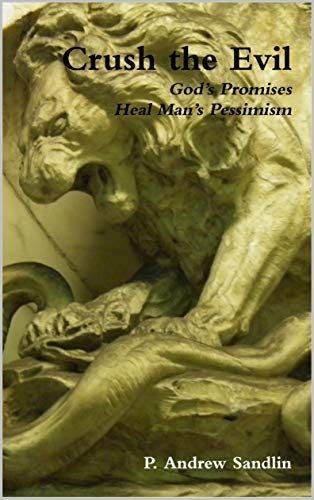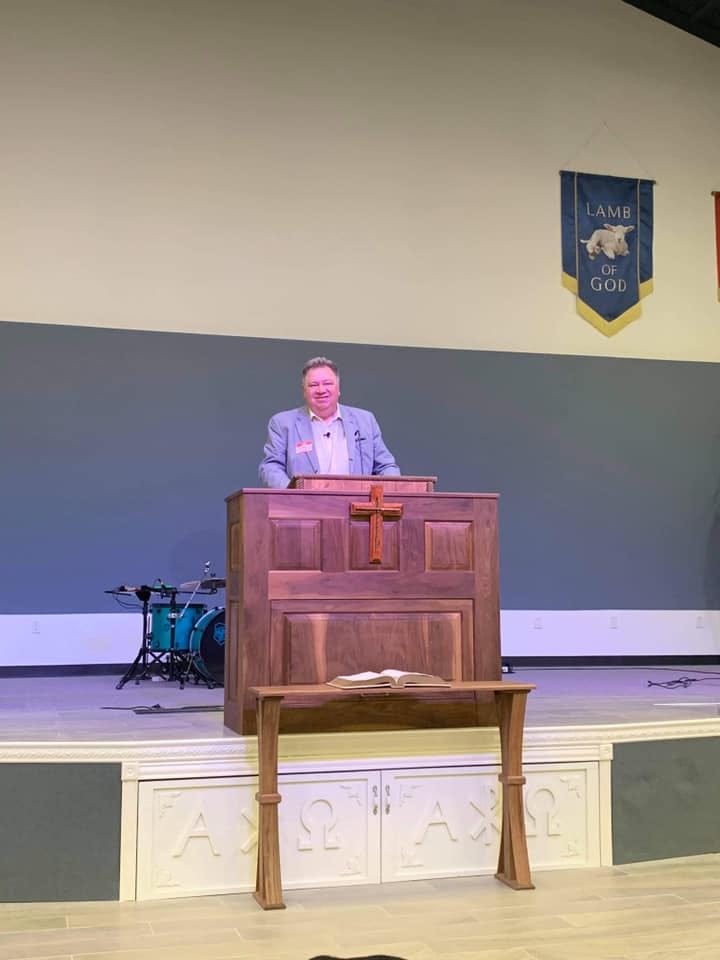Losing Well Together With the Gospel Coalition
Big Reforma is making its peace with secularism and neo-paganism, retreating to the four walls of the church and the quietist Christian family, hoping against hope that they'll be safe. They won't.
Dear friends and supporters:
Chris Colquitt’s February 12 Gospel Coalition (TGC) post “All Christians Are Losers” (originally subtitled “Let’s Lose Well Together”) naturally caught my eye. Leading the Center for Cultural Leadership for the last 20 years (and long before this) I’ve been committed to advancing and defending a culture-reclaiming message within a distinctive Reformational worldview and opposing the pious retreatism and defeatism Colquitt’s post exemplifies. Over the decades I’ve noticed that our leading conservative evangelical ministries are often the most notoriously defeatist — and for that reason pose a grave cultural danger. This post will explain why.
It’s fair to start by acknowledging that the TGC is truly a coalition and not a monolith. It’s a sort of platforming clearinghouse for modern broadly Reformed and evangelical opinion and includes some superb articles. However, it is, as we could say in Bushian parlance, a coalition of the willing, including the weak and wayward willing; and if you look up “mixed bag” in the dictionary, you might find TGC as a leading example. It is promoting soft-core Leftist racism as well as tiptoeing Cultural Marxism. TGC also carries stellar posts by my CCL colleague Brian Mattson, like this book review.
Colquitt’s post isn’t in the latter category.
The Comfortable Losers
His burden is to reassure Christians during our time in which Christianity seems patently in rapid cultural decline:
To be an American Christian today is often to be a cultural loser. This is true both as a matter of demographics and regarding the influence and respectability of traditional Christian beliefs. There are fewer Christians in neighborhoods, and our neighbors think less of us. We are increasingly outsiders. And how we respond to this reality may be the defining question of our time.
His reassurance in the face of this loss doesn’t come in the form of reminders of the festering of biblical promises of pre-consummate (before the eternal state) cultural victory for biblical Christianity. Rather, Colquitt reassures his readers that Christians are just naturally cultural losers — and that we should work together in losing well in culture.
“The good news is that Christianity has always been a religion for (short-term) losers,” he writes, and one wonders whether he has investigated the cultural dominance of Christianity in the longest-lived civilization in history, the Byzantine Empire; the Christendom synonymous with the medieval era; early Reformation Europe; and the Puritan commonwealths in both England and the New World. That cultural Christianity was far from perfect, but it most emphatically was not “for (short-term) losers.” Short- and in some cases very long-term victory was almost omnipresent. Christians were precisely the short-term winners.
A Questionable Metaphor
Colquitt proposes the apostle Peter’s response to our Lord’s trial and arrest as a kind of extended metaphor for how Christians today are (wrongly) reacting to their cultural disenfranchisement:
As the authorities and then crowds turn on Jesus, power and respectability are lost in quick succession. Soldiers transform the quiet refuge of Gethsemane into a torchlit siege, and Peter wields the sword of resistance before being rebuked by the Lord. Shortly thereafter, as association with Jesus loses all respectability, Peter takes a different approach: denying Christ to secure a place near the warmth of a fire.
These dual losses are intimately related—the loss of cultural power leads inexorably to the loss of cultural respectability—but the reactions are quite different. Sensing power slipping, Peter rises to fight. Sensing respectability lost, he hides. Both perspectives misunderstand and misrepresent his Lord, and in this we see a picture of the twin dangers for Christians today.
Older culture warriors
Peter’s wielding the sword exemplifies today’s older Christians’ response: fighting the culture war (Colquitt links to the TGC post “If You’re Fighting the Culture War, You’re Losing”). This battle, Colquitt opines, is a mistake:
Win, lose, or compromise, Christian influence on American culture and politics is not the measure of Christ’s kingdom. Missing this reality imperils our faith and witness.
Younger accommodation junkies
Then Colquitt turns to the younger Christians, who rightly oppose their parents’ generation’s culture war. Their own problem, however, is represented by Peter’s subsequent denial of his Lord around the fire during Jesus’ nearby trial. Just as Peter realized that being a Christ-follower was to rapidly invite disreputability (nobody wants to be identified as a champion of a criminal executed for insurrection), so younger evangelicals, obsessed with respectability, will compromise the faith to keep up their social status among increasingly prominent Christ-haters:
Responding poorly to the loss of respectability looks much different from the loss of power—but the danger is equally real. Young and elite Christians aren’t tempted to fight for a Christian America, but rather to slide into the crowd and make compromises to preserve the respectability they’ve tasted and worked hard to maintain.
Colquitt is right on 1.5 points and wrong in his underlying argument. To the extent that older Christians fighting the culture war identify it as fundamentally a political war, they are wrong, and Colquitt is right to identify their error. Christians of all people must avoid “The Degeneration into Political Soteriology.” The battle is foundationally cultural and only secondarily political. As Henry Van Til famously wrote, “Culture is religion externalized.” The culture war (not the political war) is the Christian war.
Colquitt is entirely correct in charging many (by no means all) younger Christians of wishing so fervidly to preserve their respectability in the eyes of modern pagans that they threaten to betray Jesus Christ. They are “The Accommodation Junkies.”
A Theology of Pre-Consummate Victory
But enlisting the narrative of Peter’s bold violence and consequent craven betrayal as a metaphor buttressing a contemporary strategy of cultural retreatism and defeatism is questionable at best, hermeneutical malpractice at worst. Why not simply argue straightforwardly from (or at least invoke) biblical texts he supposes support his view?
For my own view, I would consider, for starters, Daniel 7:13–14, 26–27, which describe the ascension as the enthronement of Christ and the subsequent rule in the earth by his saints during the present interadvental era:
“I [Daniel] was watching in the night visions,
And behold, One like the Son of Man,
Coming with the clouds of heaven!
He came to the Ancient of Days [God the Father],
And they brought Him near before Him.
Then to Him was given dominion and glory and a kingdom,
That all peoples, nations, and languages should serve Him.
His dominion is an everlasting dominion,
Which shall not pass away,
And His kingdom the one
Which shall not be destroyed….
‘But the [heavenly] court shall be seated,
And they shall take away his [the final ancient Roman dictator’s] dominion,
To consume and destroy it forever.
Then the kingdom and dominion,
And the greatness of the kingdoms under the whole heaven,
Shall be given to the people, the saints of the Most High [Christians during the collapse of the ancient Roman Empire].
His kingdom is an everlasting kingdom,
And all dominions shall serve and obey Him.’
I could add numerous texts. (Listen to my lecture “The Greatness of Victorious Eschatology” for more.) Also, for further biblical texts, please read this hard-hitting booklet:
Shows that due to the promises of the Bible in Jesus Christ's death and resurrection, Christians must not be pessimistic about either individual or cultural evil, which God is progressively crushing.
My point is that, while no post can include a full argument, if you’re going to insist on cultural retreat, you might want to enlist more than a questionable metaphor.
Callous Indifference
Perhaps, however, the most objectionable feature of Colquitt’s post (aside from its non-biblical premises) is the unintentional but astonishing indifference and callousness to the consequences for Christians and church and society that his perspective reflects.
For a loss of Christian culture, and even more egregious, a refusal to pray and work and fight for it, does carry consequences, and it is remarkable that this fact has seemingly not entered the moral calculation of Colquitt and others holding his view. At least, they should be obliged to grapple with it.
Abortion
For as Western culture de-Christianizes, what about the radically increased number of abortions that would come in the wake of the loss? It will not suffice to counter with the statistics of the gradual reduction of abortions in the U.S. That is due, humanly speaking, to the relatively recent prayer and hard work of Christians and other conservatives committed to legal protection preborn children and alternatives (like adoption) to abortion. With that influence removed, the number of abortions will skyrocket. Is Colquitt indifferent to the plight of these potentially butchered children? I’m sure the answer is no, but his strategy is.
The Sexual Revolution
And what about the Sexual Revolution? (We live in “The Erotic Regime.”) Have you considered how many social maladies are the consequences of the Sexual Revolution? Abortion, homosexuality, same-sex “marriage” and “attraction” ( = temptation), pornography, artificial reproductive technology, rampant no-fault divorce, robotic and other “virtual” sex, the routinization of premarital sex, skyrocketing out-of-wedlock births, radical feminism, the global sex-slave trade — all these and more are unthinkable on the present scale apart from the advance of the Sexual Revolution.
And how would Colquitt’s proposal address the Sexual Revolution? In effect, roll over and play dead. In other words — invite more homosexuality, porn, family- and child-wrecking divorce, humanity-commodifying sex, illegitimate births, radical feminist ideology, and child and female sex slaves. Again, not what Colquitt wants, but what he’d get.
Religious liberty
Finally, consider religious liberty. Religious liberty in the West is a fruit of Christian culture. We are free religiously (and politically) because of Christian culture. To lose Christianity as a cultural force is to lose religious liberty — including eventually the liberty to meet in the very church or ministry Colquitt leads. His diffidence toward this loss is perplexing. In 1 Timothy 2:1–2 Paul writes:
Therefore I exhort first of all that supplications, prayers, intercessions, and giving of thanks be made for all men, for kings and all who are in authority, that we may lead a quiet and peaceable life in all godliness and reverence.
But in the modern world secular and other non-Christian regimes increasingly forbid “a quiet and peaceable life” to Christians as Christians. So to make your peace with that same radically non-Christian hostility is to invite the suppression of the gospel and persecution of Christians, the very things Paul demands we pray that our political leaders avoid. To surrender the culture war is to surrender religious liberty. Paul won’t permit us to do that.
In these spheres and others, Colquitt seems blissfully unaware of the dangerous cultural consequences his proposal would invite and ensure.
If you’re going to throw in the cultural towel, at least let your readers know the steep price your proposal will force them and their descendants to pay for your surrender.
Don’t Misquote Jesus
Colquitt concludes his post with this:
In this world we will have trouble; in this world we will lose; but take heart, Christ has overcome the world.
This is a paraphrase of John 16:33, which actually reads:
“These things I [Jesus] have spoken to you, that in Me you may have peace. In the world you will have tribulation; but be of good cheer, I have overcome the world.”
Jesus did not say, “[I]n this world we will lose.” He did say, alternatively, “’And I also say to you that you are Peter, and on this rock I will build My church, and the gates of Hades shall not prevail against it’” (Mt. 16:18).
Jesus promised his disciples tribulation — and victory, including cultural victory (see the sequence of interadvental history in 1 Corinthians 15:20–28).
Putting words in Jesus’ mouth to bolster an argument for indifference toward the retreat of his kingdom in history and culture is not, if I may say so, an especially persuasive debate tactic.
Conclusion
You’d think that of all contemporary iterations of Christian traditions, the Reformed would be the most kingdom-advancing, culture-reclaiming, and optimism-inducing. After all, this tradition has highlighted more than any other the sovereignty of God and his Word over the entire range of life, not merely the churchly and familial, and none has been more hospitable to an eschatology of pre-consummate earthly victory for the gospel of Jesus Christ.
But Big Reforma is making its peace with radical secularism and neo-paganism, retreating to the four walls of the church and the quietist Christian family, hoping against hope that after devouring the culture, Satan will halt and respect the sanctity of the church and family.
No assumption could be more monstrously naïve. He is sharpening his fangs for our church members and children, who will collapse just as readily as the wider culture if we refuse to fight in the power of the Word and Spirit.
If we do not combat Satan out in the culture — in education, entertainment, philosophy, science, medicine, journalism, politics, and technology — we will be forced to combat him when he beats down the church and home doors.
And by then, the battle will be lost.
Will you consider a tax-deductible donation to CCL via PayPal or Venmo? Or mail a check to CCL, Box 100, Coulterville, CA 95311. God uses you to keep us going — and expanding.
Personal
This coming Sunday, March 7 at 11:00 a.m. Sharon and I will be at Church of the King-Sacramento, where I’ll be preaching for my long-time friend, Pastor John Stoos. I’ll be delivering the ministerial charge for the new assistant pastor, Paul Liberati.
We hope to see many of you northern California friends there.
I’m finalizing CCL’s newest e-book: Realized Religion: Victory Already, Before the “Not Yet.”
The title of next week’s issue of this e-newsletter will probably be “Gnostic Funerals.”
Your prayer and money are what God uses the keep CCL expanding. If you are inspired and encouraged by the optimistic victory message of this e-letter, please consider praying daily for me and CCL, and consider sending a tax-deductible donation.
Yours against losing well,
Founder & President
Center for Cultural Leadership
P. S. Here are a few photos from last week’s successful Make Christianity Great Again conference at Church of the King-McAllen, Texas (lectures linked below).
Recent additions:
“Make Christianity Great Again”
“The Biblical Gospel Versus the Marxist Gospel”
“The Greatness of Answered Prayer”
“The Greatness of Jesus Christ”
“Creational Christianity Before Redemptive Christianity” (interview)
For a brief analysis of the recent Christian sympathy for Critical Race Theory, see my “Critical Theory Is Neither Meat Nor Bones — It Is Alien.”
More great stuff:
The Center for Cultural Leadership site is here.
My Amazon author page (print and digital) is here.
You can find my sermons and lectures at my YouTube channel.
Sign up to get my blog updates here.
Here’s my Twitter feed.
Here’s my Parler feed.
If you want to get the free exclusive hard copy publication Christian Culture, please send me a Facebook private message.
The CCL phone number is 831-420-7230.
The mailing address is:
Center for Cultural Leadership
P.O Box 100
Coulterville, CA 95311









